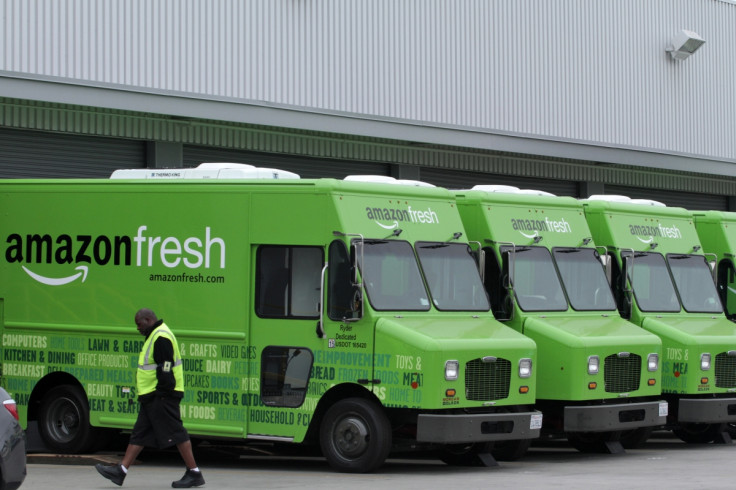Amazon launching its own line of groceries in 'monumental turning point for industry'

Amazon is reported to be preparing to launch new private-label brands of perishable goods and groceries as the e-commerce company continues its march on traditional retailers. According to The Wall Street Journal, Amazon's new brands will cover every-day items like tea, coffee, baby food and vitamins, which it will send under brands names that include Happy Belly, Wickedly Prime and Mama Bear.
Amazon will also sell common household perishables, like laundry detergent and nappies, under new private-label brands, which sources told WSJ, could be ready for launch as early as June 2016. What countries the service will be rolled out to wasn't specified. However, we expect a launch in the US first, with the UK following soon after.
Amazon already sells own-brand products under its Amazon Basics label, which includes electrical goods, office supplies, furniture and clothing accessories, amongst other items. Products from the company's new labels will reportedly only be available to customers with an Amazon Prime subscription, which costs £79 a year ($99 in the US).
The company has recently started to expand the range of items available exclusively to Prime members, which as of April includes triple-A video games like Fifa and Grand Theft Auto.
By selling its own lines of groceries, it's thought Amazon will be able to save on branding and marketing costs and reap higher profit margins as a result. It will also allow the company muscle in on the success of discount supermarkets, which have grown in popularity in recent years.
Prime chow
Amazon's ongoing attempts to become a one-stop-shop for customers has also seen the company launch Amazon Pantry and Prime Now, both of which allow customers to order edible goods from its website.
Commenting on the reports, Jens Nielsen, head of Nordics & UK at digital marketing agency NetBooster, said: "If reports of Amazon launching a range of private-label groceries become reality, it would represent a monumental turning point for the grocery industry. Not only will the e-commerce giant pose a new level of competition for supermarkets, it will demonstrate yet another traditional sector experiencing digital disruption.
"With traditional grocers already facing heavy competition from large discount supermarkets, such as Aldi and Lidl, the reports should be a further call to action for grocers to consider their competitiveness in this changing market. In order to compete with digital disruptors, a big part of this should be considering their digital strategy and ensuring that e-commerce is a board-level issue."
© Copyright IBTimes 2024. All rights reserved.






